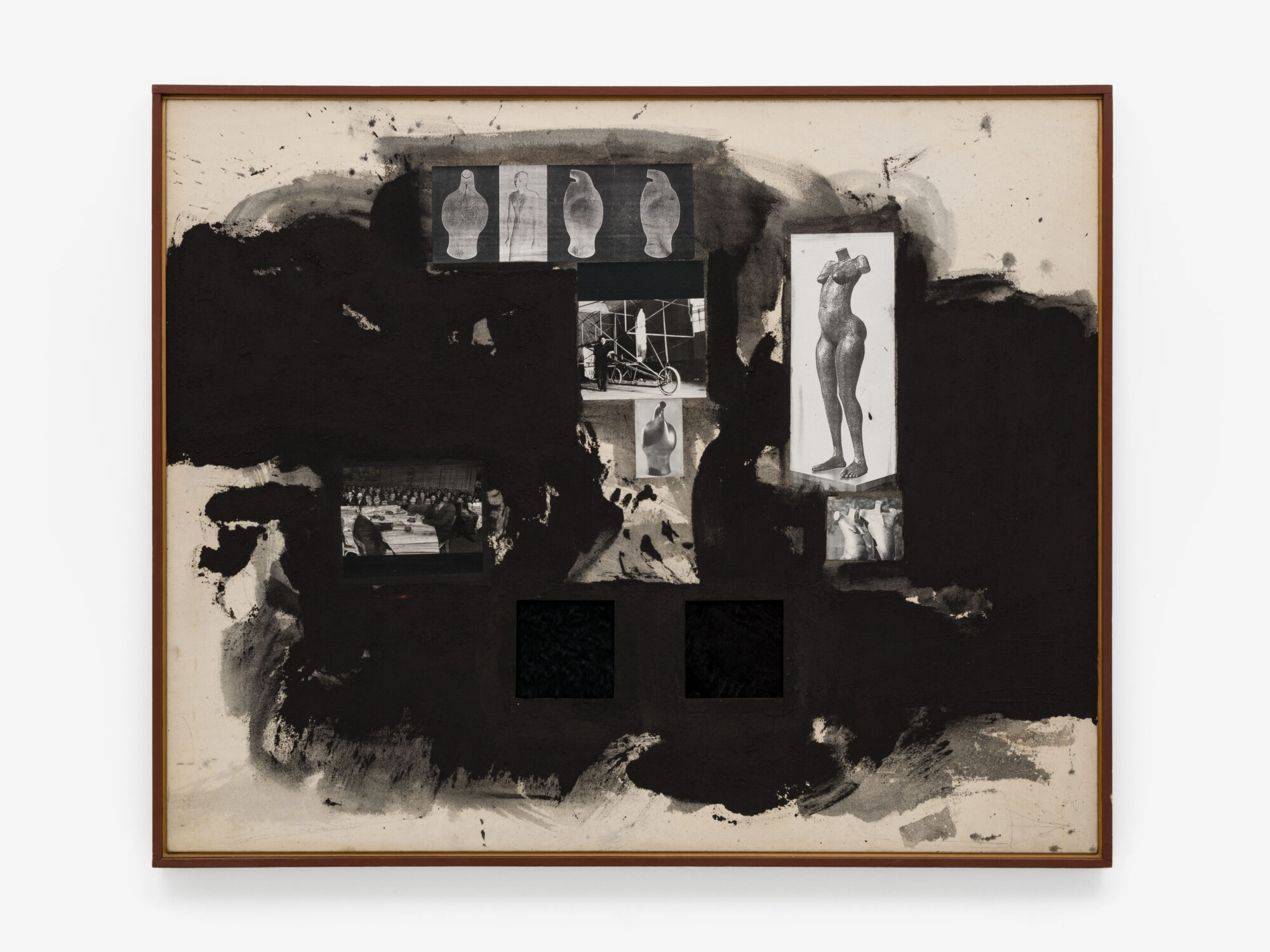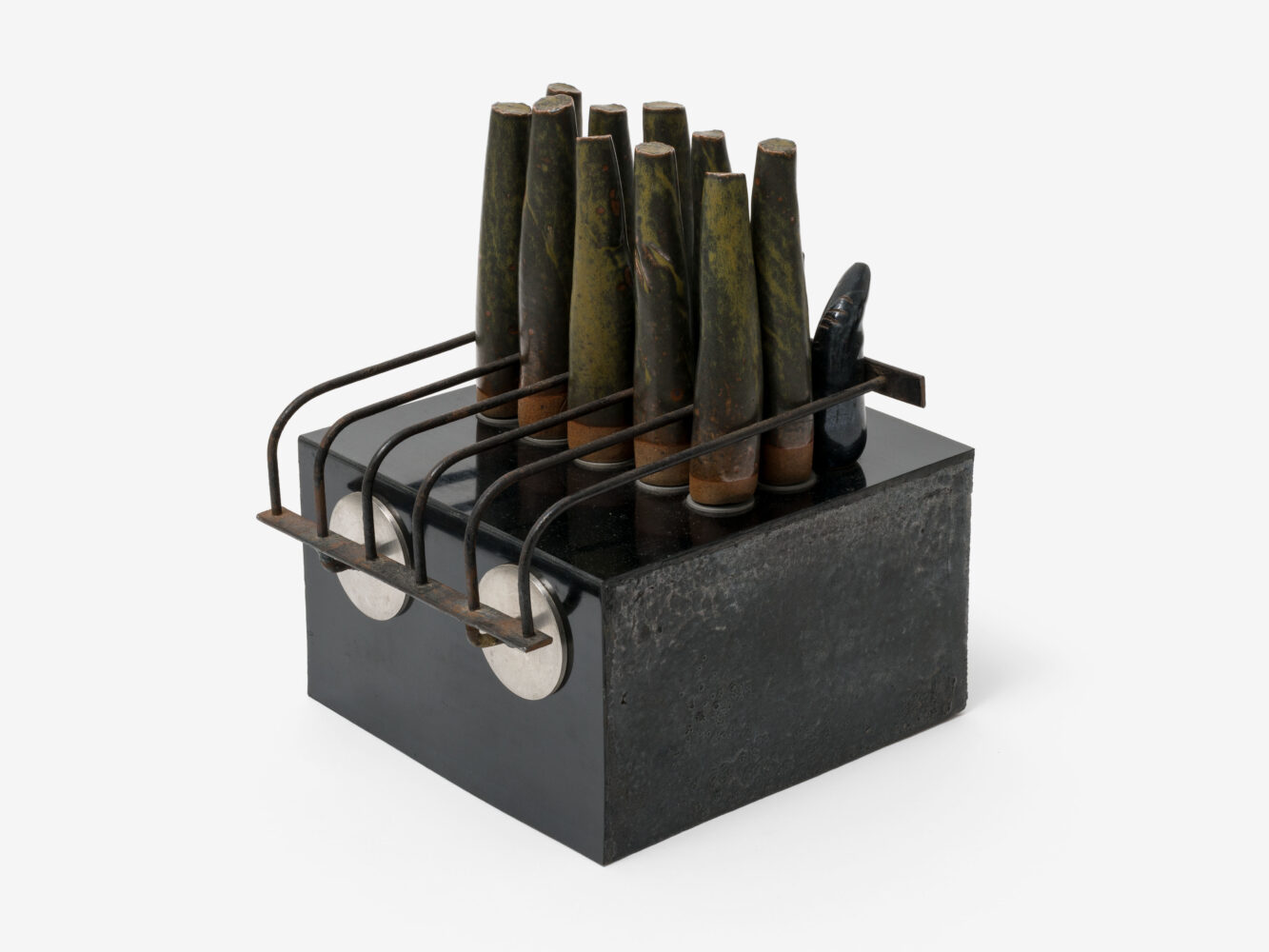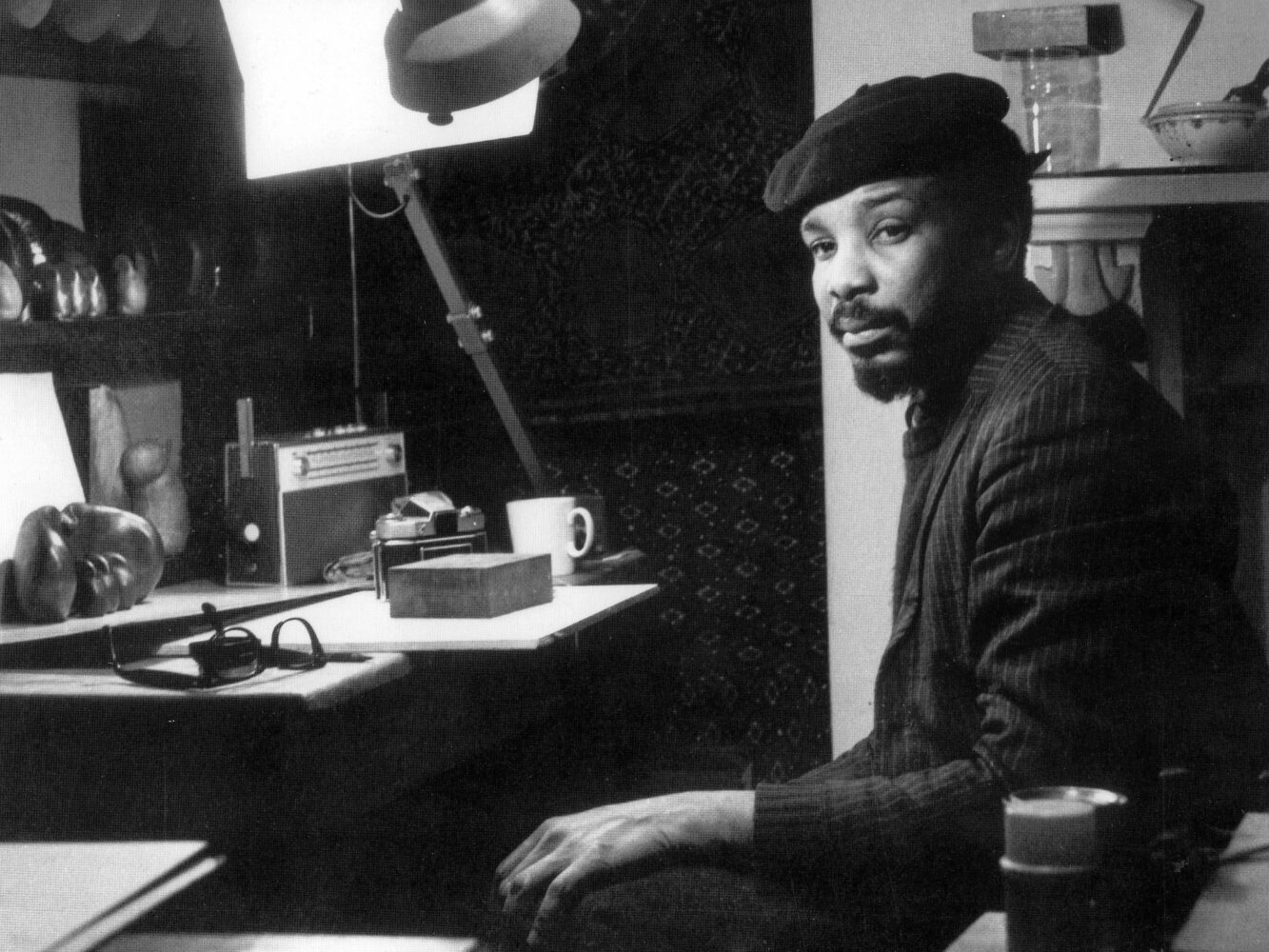Text
My work has been trying to encompass and bend to the will of the imagination, every aspect of the life and experience of black people in the New World – their political and sociological structures, the landscapes they inhabit, their physical uniqueness, the folk-lore and myths which crowd their imagination, and the socio-economic legacies they inherit from the past.
– Donald Locke, 2004
Alison Jacques participates in Frieze Masters with a solo presentation of Guyanese artist Donald Locke (b.1930, Stewartville, Guyana; d.2010, Atlanta, USA). Locke studied in the UK and lived between Guyana and the UK for many years before moving to the US in 1979. This presentation anticipates Locke’s forthcoming UK museum survey exhibition at Spike Island, Bristol (31 May – 7 September 2025), which will tour Camden Arts Centre, London and Ikon Gallery, Birmingham. Locke’s work is currently on view at Tate Britain as part of ‘Ideas into Action 1965-1980’, following his inclusion in ‘Life between Islands: Caribbean-British Art 1950s-Now’, Tate (2022).
Donald Locke frequently drew upon the folklore, myths and poetic aspects of Guyana. Inspired by natural forms and the human body, he explored issues around history and identity. The Frieze Masters presentation spans 26 years of Locke’s career, including his renowned Plantation Series (1972-76). These sculptural metaphors for the plantation system of labour, wealth and social structure question the system whereby one group of people are kept in economic and political subjugation by another. Locke grew up at a time when Guyana was still a British colony, and at the time was defined by a plantation system. Political and social observations became central to Locke’s practice over the next five decades of his work.
One part of the Frieze Masters presentation will focus on Locke’s first love: ceramics. Locke studied this medium at Bath Academy of Art, where he was introduced to non-traditional ceramics; sculptural rather than practical, with shapes and colours that echo the natural world. Locke went on to make ceramics that were politically charged and empowered by a need to express a different history. Many of the ceramic works exhibited at Frieze Masters are anthropomorphic sculptures, inspired by organic forms and the human body, cast in ceramic and sometimes aluminium.
The final series of works within the presentation are paintings and collages which Locke made in the 1990s. His paintings combined heavy paint, photographs, cloth, wood, metal and found objects mounted on canvas. Their loaded, erotic and sometimes violent symbolism brings to mind haunting memories from the past, related to slavery, identity and sovereignty.
Donald Locke is included in major UK collections including Tate; Victoria and Albert Museum; Glasgow Art Museum; National Museums of Scotland, Edinburgh and the Fitzwilliam Museum, Cambridge.



